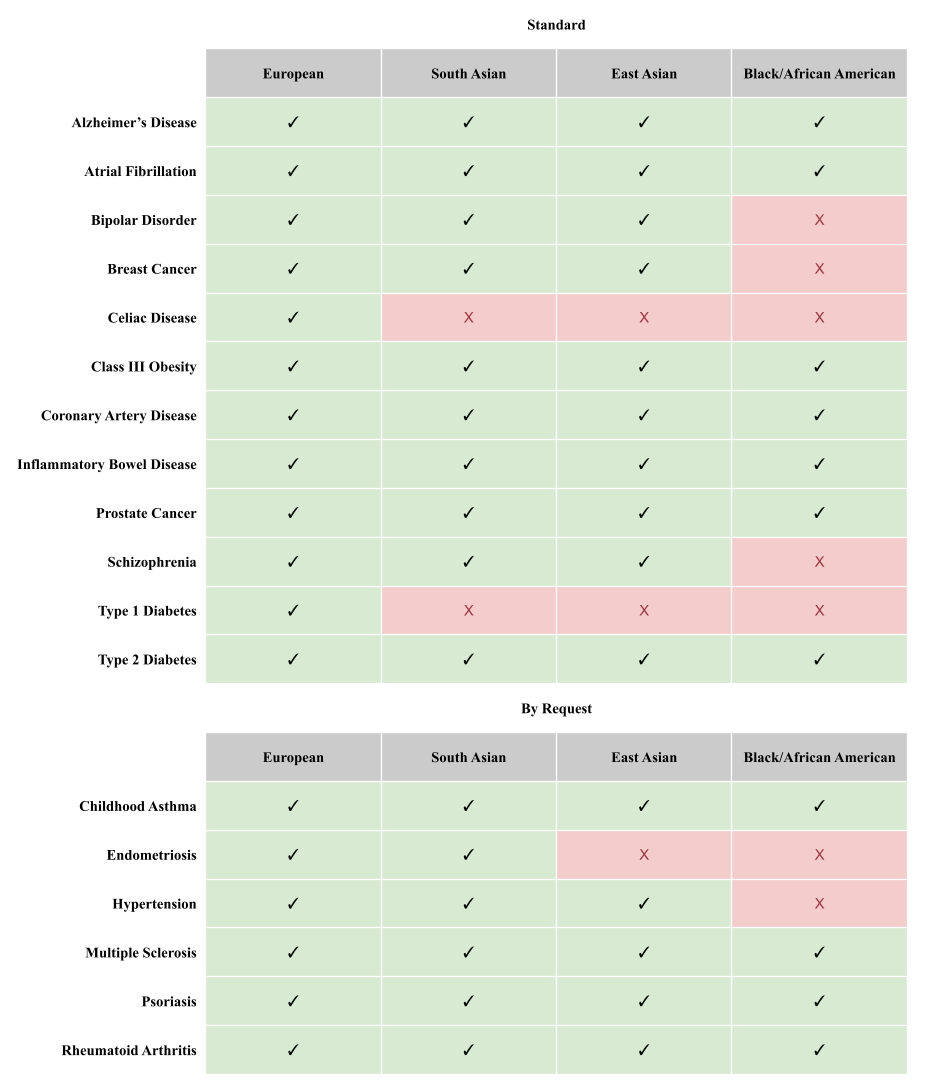Why now?
Genetics impacts every family’s health, not just a very small group of people impacted by rare genetic disorders.
Most diseases have a genetic component — meaning that a person’s genetic makeup can influence their chance of developing disease.
However, up until recent years, we have not been able to quantify our genetic susceptibilities for the most common chronic diseases such as diabetes, heart disease, and breast cancer. And so most of us walk through life unaware of our unique genetic makeup that impacts health risk.
Orchid is here to change that. With advanced genetic testing at Orchid, you can measure what known genetic predispositions you can pass onto your future child. Our Couple Report tells you if your future child is expected to have an elevated or normal genetic risk to top chronic diseases, based on you and your partner’s DNA. Genetic risk impacts the risk of developing conditions.
Diseases screened for in the Couple Report include:

These results can help identify whether you, your partner or your future child can have a higher chance of developing top chronic diseases compared to average. It is not a diagnosis of disease, however, since some people with elevated genetic risk never develop the disease while others with normal genetic risk will. Part of the reason why is because your overall disease risk depends on the genetic factors we analyze, as well as several other factors such as lifestyle habits and family history.
For example, an elevated risk for heart disease can mean that the risk of developing heart disease at some point in life, known as lifetime risk, is higher than the average general population.

Knowing you and your partner’s genetic risks helps you optimize your family’s health — bringing more information and clarity that families had no way of knowing before.
Is this test for me, even if I don’t have any personal or family history of these conditions?
Yes — large-scale studies have shown that measuring genetic risk can identify individuals with increased risk of developing disease independent of conventional risk factors like family history or routine blood tests.
That means you can discover health risks you weren’t even aware of, helping you better prepare for the future and protect your future child’s health.
What can be done if there is an increased risk that’s discovered?
If your Couple Report shows that your future child has an increased genetic predisposition to a condition, you have options about how you want to use this information, and actions can be taken to mitigate those risks.
Tailor your family’s diet, fitness, and health.
Orchid results can help you better prepare for the future through personalized preventative measures and increased awareness. Healthy lifestyle changes can offset genetic risks to these chronic conditions and being able to measure these risks puts you one step ahead of the game.
Choose to mitigate your future child’s genetic risks through follow-up embryo testing.
If your future child can have an elevated genetic risk of a condition, one option is to choose to lower your future child’s genetic risk through in vitro fertilization (IVF) and follow-up embryo screening. By determining each embryo’s genetic risk for certain conditions, you can elect to prioritize transferring embryos with the lowest genetic risk.
Explore more from Orchid Guides
- What you get with Orchid’s Couple Report
- 23andMe vs. Orchid: what’s the difference? Consumer genetics explained by a genetic counselor
- The ultimate guide to genetic testing before pregnancy: actionable advice for couples
- A board-certified genetic counselor explains what genetic risk means — and what testing can tell you







